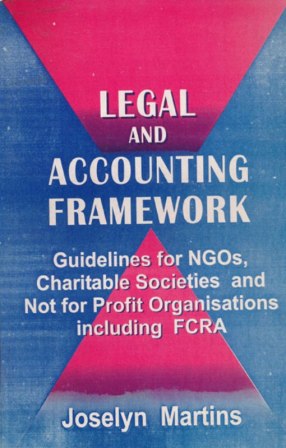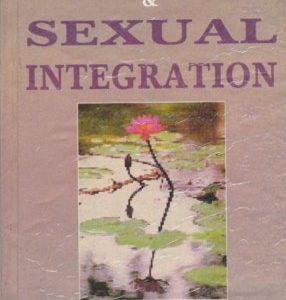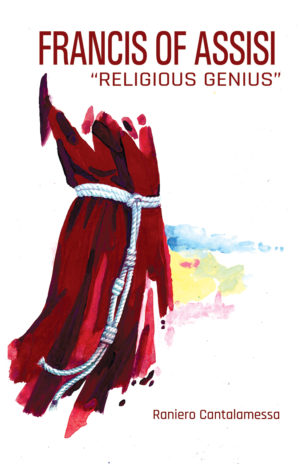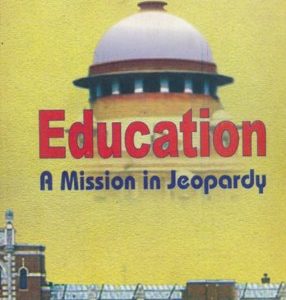Description
LEGAL AND ACCOUNTING FRAMEWORK
Guidelines for NGOs, Charitable Societies and Not for Profit Organisations including FCRA
Compliances with regard to the various requirements greatly facilitate accountability and transparency, both to the primary and secondary stakeholders, leading to greater confidence building amongst the various players in the quest for change towards a better social order.
This book, I am sure, will be useful to the Voluntary and Charitable sector, irrespective of religious persuasion, and will ensure that the long arm of the law, instead of hampering their work with the poorest of the poor, or harassing their personnel and institutions, is left to do its primary job which is to catch tax evaders, black marketeers and hate mongers with their vast coffers of Indian and foreign donations. -Dr. John Dayal
Mr. Joselyn Martins is a Fellow of the Institute of Chartered Accountants of India and the Institute of Company Secretaries of India, with over 20 years experience. He has been a key resource person at various seminars and conferences. M/s J A Martins & Co. specialises in rendering services to Developmental Agencies and other similar institutions. The specialization is in audit, taxation, capacity building, financial management, and strengthening of local institutions through financial accompaniment services and systems design and implementation. The client profile includes a number of international and national developmental agencies besides various congregations. He is also Governance Consultant to the Departmentfor International Development, U.K.
CONTENTS
I. LEGAL FRAMEWORK FOR CHARITABLE
INSTITUTIONS
1. Legal identity
2. Evidence of Creation of the Registered Body
3. Approvals and Permissions
4. Renewal of Permissions / Consents
5. Operations
6. Audit
7. Service Tax
8. Delhi Sales Tax on Works Contract Act 1999
9. Employees Provident Fund & Misc. Provisions Act 1952
10. Payments of Gratuity Act, 1972
11. Filing of Returns
12. Accounting Standards
II. FOREIGN CONTRIBUTION (REGULATION)
ACT 1976 & THE RULES REVISITED 30 Section 1: Applicability of FCRA:
1. Is FCRA applicable to persons within India and
Outside India?
2. What is foreign contribution? Does it include only cash or cheques? Does it include Indian currency?
3. What is Foreign Source? Are Non-Resident Indians (NRIs) a foreign source? Are MNCs working in India a foreign source?
4. Why does a society or association or group of
individuals, working in areas of national life require ‘complying with FCRA for receipt of foreign funds?
5. Does FCRA apply only to an association or society
or foundation or trust, which is registered?
6. Is any specific person/ institution banned from receiving / accepting foreign contribution?
7. Can an organisation of a Political nature accept foreign contribution?
Section 2: Movement of Funds
8. Can one receive funds for an association and pass it on to another association
9. Association as second / subsequent receiver
10. Can FC funds be given to another society, which is not registered under FCRA or does not have FCRA? Can such a society implement a social programme on behalf
of the first society, which has an FCRA registration.?
11. Can FCRA funds be received by business persons / professionals in the normal course of business?
12. Are amounts received towards souvenirs in the form of advertisements or sponsorship of brochures etc. from MNC’s covered by FCRA?
13. Can FCRA funds be given to micro finance projects, setting up banking co-operatives and self help groups?
14. Is the recovery of funds under a revolving fund scheme or recovery of loans deemed to be FCRA funds?
15. Is the reimbursement of expenditure initially paid from FCRA funds an FC receipt? If on a foreign tour the cost of the ticket and incidental expenses are reimbursed in foreign currency by a foreign agency has this to be reported and accounted for?
16. Is the unspent amount from a foreign tour or otherwise, which was paid from the FCRA account
to be re-deposited in the FCRA bank account? 39 Section 3: Bank Accounts
17. Is it necessary to have only one bank account for receipt and utilisation of FCRA funds?
18. If donor agencies require separate bank accounts to
be maintained for their funds, is that permissible?
19. Can FCRA funds be invested in fixed deposits with banks or other corporate bodies or in mutual funds?
20. Is interest earned on the designated account or interest on refund of Tax Deducted at Source (TDS) under the Income tax Act 1961, required to be deposited in the designated FCRA bank account?
21. When do FCRA funds become Indian?
22. If a project is partly funded by FCRA funds and partly by local funds, how will the bank accounts be maintained for such projects and how will the reporting to MHA and the donor be done?
Section 4: Funds and Uxilisation
23. Will balance of Corpus Funds always form part of the closing balance? How can this amount be utilised?
24. Where an NGO has purchased building material from FC funds and some material remains in hand after completion, which is sold or given to another NGO, what is the treatment?
25. Can FCRA funds be transferred to the local contribution account against expenditure incurred?
26. Can local contribution funds be transferred to the FCRA account?
27. Can one fixed deposit be made by clubbing FCRA and local contribution funds?
Section 5: Persona! Gifts. Foreign Hospitality and Scholarships
28. Can personal gifts and hospitality be accepted by
the specified persons mentioned in section 4?
29. Can personal gifts be received by ordinary persons other than those specified under section 4?
30. Can an Indian citizen receive foreign scholarships
* . from a foreign source and Is there any limit?
Section 6: Books of Account and Reporting
31. What books of account and records are required to be maintained under FCRA?
32. Has FC 6 and FC 7 required to be filed with the Central Government?
33. What return has to be filed for receipt and utilisation
of foreign contribution?
Section 7: Penalties
34. What are the penalties under FCRA?
PERSONNEL LAWS AND WORKING OF CHARITABLE INSTITUTIONS
A. The Employees Provident Funds and Miscellaneous Provisions Act, 1952
1. Applicability
2. Employees Required to Join the Fund
3. Exemptions
4. Employer
5. Employee
6. Exempted Establishments
7. Contributions
8. Employees Pension Scheme
9. Employees Deposit Linked Insurance Scheme:
10. Declarations, Contributions and Returns 64
11. Penalties
12. Benefits to Employees
B. Payment of Gratuity Act, 1972
13. Applicability
29. Can personal gifts be received by ordinary persons other than those specified under section 4?
30. Can an Indian citizen receive foreign scholarships
* . from a foreign source and Is there any limit?
Section 6: Books of Account and Reporting
31. What books of account and records are required to be maintained under FCRA?
32. Has FC 6 and FC 7 required to be filed with the Central Government?
33. What return has to be filed for receipt and utilisation
of foreign contribution?
Section 7: Penalties
34. What are the penalties under FCRA?
PERSONNEL LAWS AND WORKING OF CHARITABLE INSTITUTIONS
A. The Employees Provident Funds and Miscellaneous Provisions Act, 1952
1. Applicability
2. Employees Required to Join the Fund
3. Exemptions
4. Employer




Reviews
There are no reviews yet.